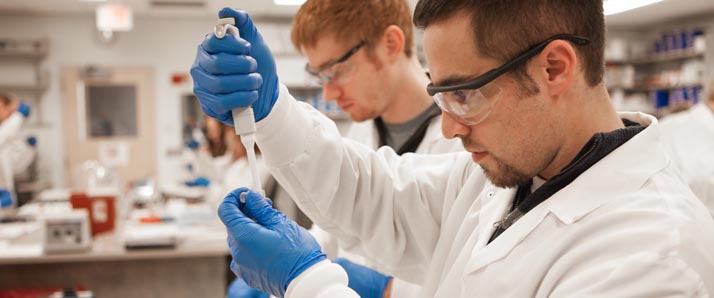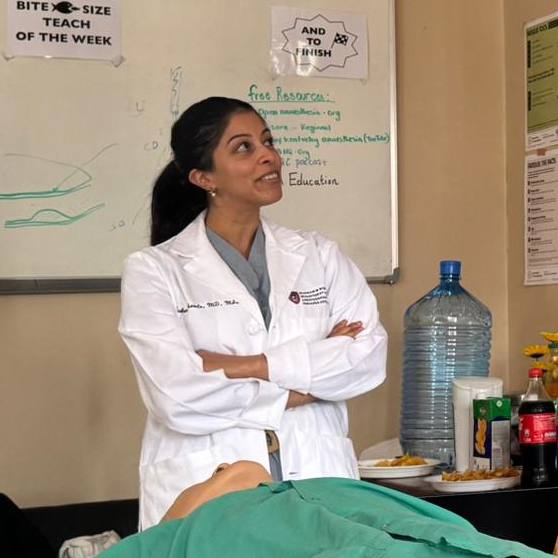-
Minnesota Partnership Awards Six New Research Grants
New treatments for cancer and heart disease dominate the 2015 research awards recently announced by the Minnesota Partnership for Biotechnology and Medical Genomics. The state-supported funding was distributed among six research teams, based on competitive applications. Each team represents researchers from Mayo Clinic and the University of Minnesota. A seventh grant was also awarded to help support commercialization of a research finding previously funded by the Partnership.
“These are seed grants, aimed at providing innovative researchers the means to get a scientific project off the ground and on the way toward a possible new treatment,” says Eric Wieben, Ph.D., of Mayo Clinic, program co-director for the Minnesota Partnership.
“I’m pleased that we are entering our second decade of scientific progress with so many strong projects that could potentially change how medicine is practiced,” says Tucker LeBien, Ph.D., of the University of Minnesota, program co-director.
The seven grants totaled just under $5.5 million.
Media Contacts:
Bob Nellis, Mayo Clinic 507-284-5005 Holly Ziemer, University of Minnesota 612-626-7037
Pharmacogenomics and Prostate Cancer Treatments
Researchers will be using both clinical studies and a lab-based approach to discover what makes some prostate-cancer drugs ineffective for some patients.
Scott Dehm, Ph.D., University of Minnesota,
Manish Kohli, M.D., Mayo Clinic
A New Kind of Heart Valve
Researchers hope to use engineered tissue developed at the University and stent technology developed at Mayo Clinic to create a new type of heart valve - one that can be built on a stent and benefit from having new cells added to it.
Amir Lerman, M.D., Mayo Clinic
Robert Tranquillo, Ph.D., University of Minnesota
Exploring New Drugs for Multiple Myeloma
Researchers will be checking genetic signatures of patients’ reaction to proteasome inhibitors, a new class of cancer drugs aimed against multiple myeloma. Not all patients respond equally well to the drugs. The team will be using genomic scans and clinical studies to find out why in hopes of finding the best treatment for each individual.
Brian Van Ness, Ph.D., University of Minnesota
Shaji Kumar, M.D., Mayo Clinic
Safer Solutions to Treat Aortic Valve Calcification
A new drug to treat aortic valve calcification has problems because it can be toxic to the liver. Without an effective drug, surgical replacement of the valves is the only option. The team plans to uncover the chemical mechanisms underlying the reaction and find alternatives at the molecular level.
Jordan Miller, Ph.D., Mayo Clinic
Michael Walters, Ph.D., University of Minnesota
Electroporation for Selective Cardiac and Extracardiac Tissue Ablation
These researchers continue their honing of techniques for ablating damaged heart tissue while preserving surrounding cells.
Samuel Asirvatham, M.D., Mayo Clinic
Paul Iaizzo, M.D., University of Minnesota
VSV-cDNA Therapy for Treatment of Glioblastoma
This research team will use animal models to study use of a virus to combat deadly brain cancers. The virus activates the body’s own immune system to fight the tumors.
Richard Vile, Ph.D., Mayo Clinic
Elizabeth Pluhar, D.V.M., Ph.D., University of Minnesota
Development of Novel Therapeutic Agents for Treatment of Glaucoma
This commercialization award will help support validation studies on a drug to fight glaucoma with the goal of approval by the Food and Drug Administration for patient use.
Michael Fautsch, Ph.D., Mayo Clinic
Peter Dosa, Ph.D., University of Minnesota
The Minnesota Partnership for Biotechnology and Medical Genomics is a collaboration among the University of Minnesota, Mayo Clinic and the state of Minnesota. To learn more about the Partnership, visit www.minnesotapartnership.info.
Related Articles








